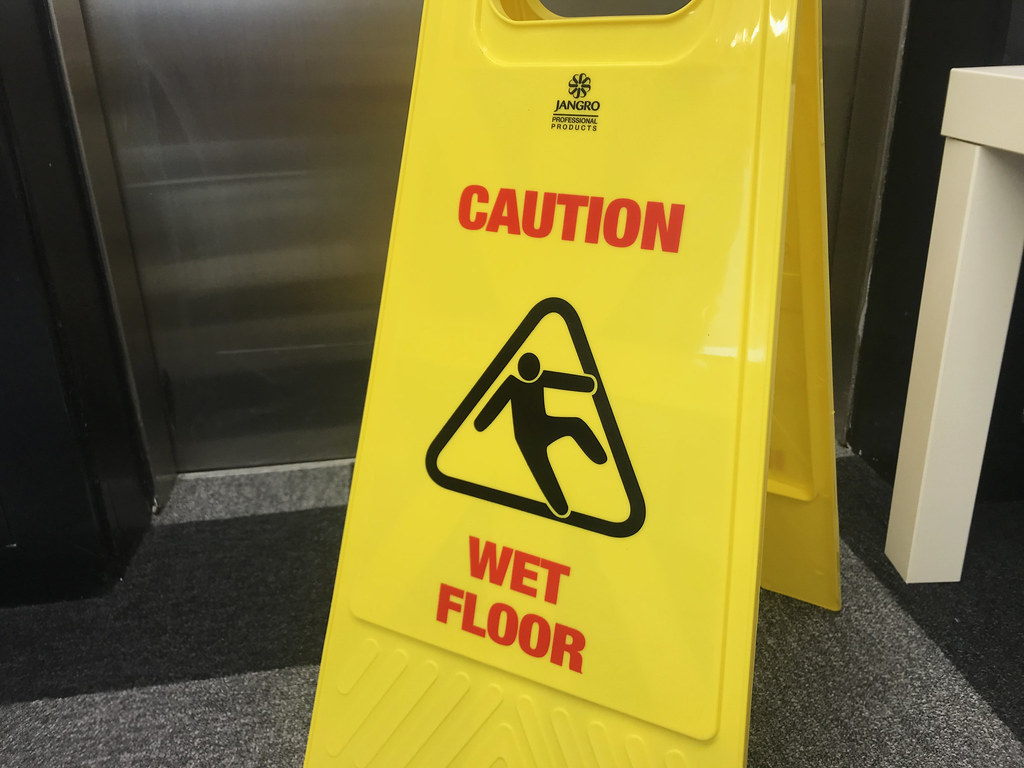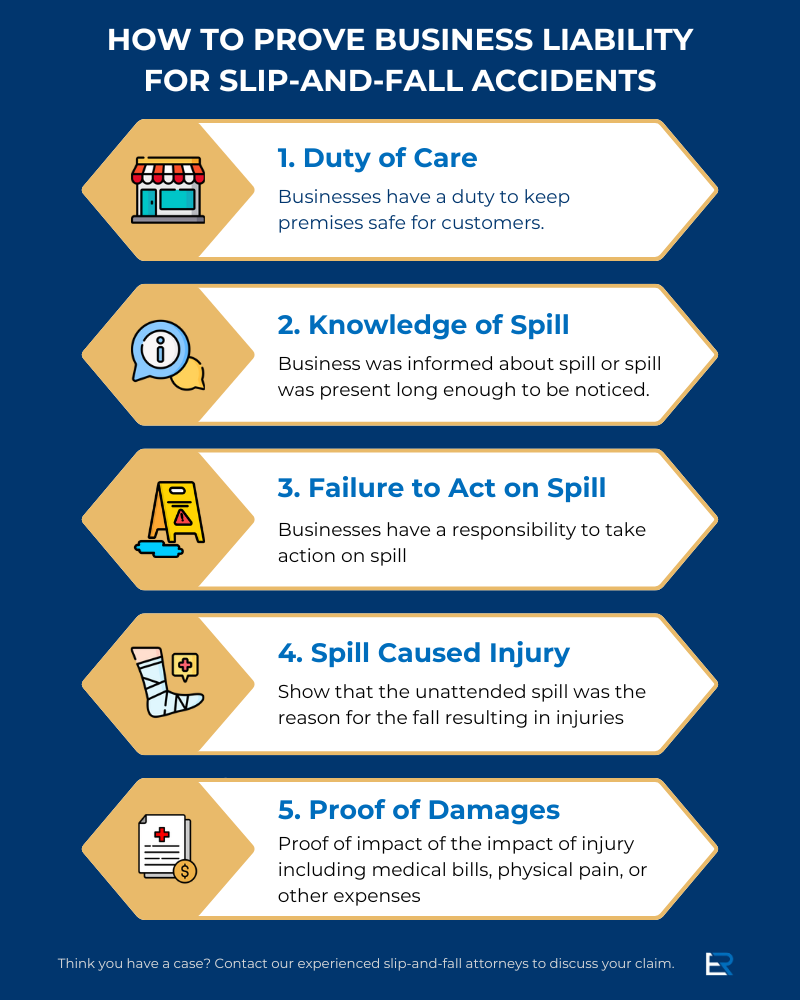Slips and falls accidents are common, though, in many cases, they’re avoidable with a little care. While it might seem to be the fault of the victims of these falls for not watching where they’re going, businesses and property owners are at fault for not providing a safe environment. What happens when a business or property owner was warned about a dangerous condition and they didn’t act to secure the area?
Negligence is key in determining business owner liability

When it comes to establishing the fault of a business owner in causing the slip and fall of a patron, it’s important to determine if the business owner was, in fact, negligent. Negligence under civil law requires that a defendant, such as a business owner:
- Has a duty of care to keep customers safe.
- That duty was breached through either carelessness or intentional neglect.
- The breach was a direct cause of the accident.
- The accident caused injuries or other damages to the victim.
If all these factors are present, the business may be liable for the slip and fall.
Suppose there’s a spill on the floor at a grocery store and a conscientious customer notifies the management. Further suppose the business managers acknowledge that spill and don’t act to either clean it up or place barriers and warning signs around the location of the spill. Later, a customer steps in the spill and falls, causing injuries to that individual. In that situation, is the business owner liable?
Proving Business Liability

Several key factors must be proven to hold a business liable for a slip and fall incident due to an unattended spill. Here’s what needs to be shown:
- Duty of Care to Customers: A business has a duty to keep its premises safe for customers. This includes regularly checking for hazards like spills and cleaning them up quickly to prevent accidents.
- Knowledge of the Spill: To prove liability, you need to show that the business either knew about the spill or that the spill was there long enough that they should have known. For instance:
- An employee or manager was directly informed of the spill.
- The spill was present long enough that a reasonable business would have spotted and cleaned it.
- Failure to Act on the Spill: Once aware of a spill, the business has a responsibility to take action. If the business fails to mop up the spill, place wet floor signs, or block off the area, this lack of action is a failure in their duty of care.
- The Spill Was The Direct Cause of Injury: You must show that the unattended spill was the reason for the fall and resulting injuries. For example, if a customer slipped directly on the spill, the spill itself is the cause of the injury.
- Proof of Damages: Finally, the incident must have resulted in injuries including physical pain, and medical bills, or other expenses. These damages show the impact of the accident and provide a basis for seeking compensation.
Courts use these guidelines to decide if a business acted negligently. If it’s proven that the business ignored a hazard, like a spill, they may be liable for any resulting accidents. In the above example, the business manager was notified about the spill and declined to have the spill cleaned or blockaded.
Role of a “Reasonable Person” in Negligence
Much in determining the negligence of a business, or any defendant in a civil lawsuit, hinges on what a “reasonable” person would do or assume. This leaves us with the question of what determines reasonable in that term. Essentially, the reasonable person is the ideal of a how a typical person would react and/or think in the given situation. This is a matter of opinion, left up to a judge or a jury to assess within the circumstances of the case. The ability or inability of the defendant to act isn’t the issue, because it’s assumed he or she would do what any other typical person would do in that situation.
In our example of the spilled substance, is it safe to assume a typical person would have cleaned up the spill, once it was reported? It seems very likely that most business employees would have taken a few minutes to mop up a spill, or cordon off the area, to ensure patron safety. By not acting to protect patrons from the spilled substance, the business has maintained the proximate cause of the fall, which resulted in the second patron’s fall and subsequent damages. After examining civil law and the specifics of this hypothetical situation, it is safe to say the business was liable for the slip and fall incident.
Speak With an Experienced Premise Liability Attorney Today

If you or a loved one has been injured in a slip and fall due to a business’s negligence, El Dabe Ritter Trial Lawyers can help you get the compensation you deserve. We are here to help you understand your rights and guide you through every step of your premises liability case. Call or fill out the form below to schedule a free consultation.
Fill out our form today to schedule your free consultation and take the first step towards justice.

